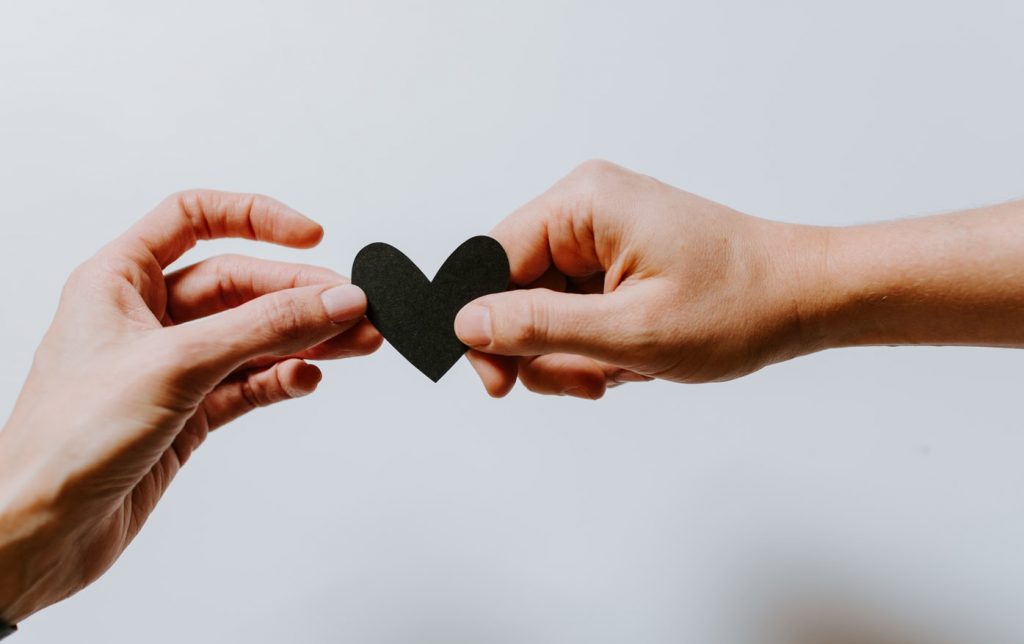
How Your Childhood Can Influence Your Relationships Today
Our past experiences influence our present ones – that’s nothing new or surprising. But how exactly, and why? Counsellor Kristýna Maulenová discusses how our childhood can impact our current relationships, and how knowing your attachment style can help you to avoid repeating mistakes and to improve the quality of your relationships…
Do you know someone who keeps repeating patterns in their (romantic) relationships? For instance, a friend dating partners who always turn out to be jealous/abusive/substance-abusing, or even just “too boring”? It might seem like pure chance or bad luck, but it might not be accidental at all!
Understanding attachment…
Our relationships with our closest caregiver/s, usually parents, influence our present relationships. More concretely, the way they responded (or didn’t respond) to our needs can shape our beliefs about ourselves (how worthy we are), about others (whether they can be trusted) and about relationships (what ‘love’ looks like).
Attachment is our innate (biological) drive to seek safety, to be protected from danger, and to form close and secure relationships. It was first described generally and studied by John Bowlby, a British psychologist, psychiatrist and psychoanalyst, in the 1960s. Two decades later, other scientists came to notice that romantic partnerships share some characteristics of the early relationships between child and caregiver – such as feeling safe when together, and insecure when apart – and attachment began to be studied in romantic relationships.
Attachment styles in romantic relationships
There are 3 main types of attachment styles: secure, and two insecure ones: anxious and avoidant. (Some scientists describe another insecure style – disorganised; for more information, see this book).
- Secure attachment style: A person with a secure attachment style feels self-confident, is able to form close relationships and talk about feelings, supports their partner when the latter is feeling bad, accepts their partner’s support, and is generally happier when their partner is around. Secure attachment develops when parents always, or almost always, adequately and sensitively responded to the child’s needs.
- Anxious attachment style (insecure): This develops when the caregiver is sometimes attentive to the child’s needs, but sometimes not. (This can also happen if the caregiver passes away or if the child is left alone a lot or with someone who is not attentive). Having experienced closeness but also abandonment, this person seeks close relationships in adulthood but feels anxious that a partner might leave. This person requires repeated assurance or backs off ‘before the partner does’.
- Avoidant attachment style (insecure): This person protects her independence, and might show coldness towards others. This attachment style develops through neglect by the caregivers, and when the child stopped ‘hoping’ and withdrew emotionally.
There appears to be a small difference between genders: slightly more women than men tend to have the anxious attachment style, while the avoidant attachment style tends to be found more often in men. Overall, around 50% of all people form secure attachments, 20% form anxious attachments and 25% avoidant attachment style (the remaining 5% form disorganized attachment style). (See this book for more info.)
So how can my attachment style affect me?
In our romantic relationships, our attachment style can have an impact on whether, and to what extent, we open up to our partner, how much of our emotions we share, how supportive we are, and how okay we are with being interdependent (to an extent) with our partner.
Attachment style may also affect our emotions and mental health, as well as physical health; secure attachment is associated with better states of mind and health. People with secure attachment style pay more visits to medical professionals (and trust them more) and have health-protective lifestyles, while people with insecure attachment styles have a higher range of health-risk behaviours, like smoking, or risky sexual behaviour.
Sleep can also be impacted (to an extent) – insecure attachment is linked with more sleep problems (which can be also found in securely attached couples on separation).
Our attachment style may even affect how we behave on and use social media! People with anxiety attachment use social media more in general, but also when feeling bad, and they are more concerned what others might think of them. In contrast, people with avoidant attachment use social media less and are not as open when on it.
Can I change my attachment style?
Attachment styles are not set in stone. They can change throughout our lives – for example, due to life circumstances, such as having a secure relationship in adulthood or going through a terrible divorce or having a partner pass away.
They can also be changed throughout our lives – for example, through conscious effort and/or in individual or a couple’s therapy. If you’d like to understand your attachment style with a professional counsellor, Expat Nest is always here for you!
What are your thoughts on this article? Have you recognized a few patterns in your relationship(s)? Feel free to share your experience, or your feedback on this article, below – we reply to every comment!
If you like this article, subscribe to our newsletter and share this article with someone who’d love to shine a light on their relationship patterns.








Although I do get the jest, I feel that there is a bit more to it though. I would say I’m a bit insecure in my relationships. Feeling insecure until there is a very firm commitment. I do find it (very) hard to talk about my emotions as this is something I wasn’t taught by my parents (the one complaint my late mother had about my late father as a mater of fact was his inability to talk about his emotions). On the other hand they were very very caring all their life for me. Even when my late father was struggling severely with his own health he showed this wonderful care.
Dear Louis,
Thank you so much for sharing your own experience with us. Our parents do the best they can with the knowledge and tools they have at their disposal. I am so happy to hear that you had such caring parents. It is also wonderful that you have realized the connection between your difficulties in expressing your emotions and similar patterns in your family.
Best wishes
Vivian
Very interesting article Vivian.
My parents were open and could express emotion freely to us. We always knew we were well-cared for – even in times of economic hardship.
My husband’s parents were formal, somewhat distant from their children. And their grandchildren, my father-in- law, much more than my mother-in-law. I never ever once saw my father-in-law play with any of his grandchildren. My father provide our girls with hugs, stories, and fun. The same as he did for me.
I do see this reflected in our married life today – I am totally “ADHD” on emotions! He bottles it up.
Dear Janice.
Thanks for your feedback and comment Janice!
It is comforting to hear that you had such an open and sincere childhood and were allowed to express your emotions freely and it is very interesting indeed that your husband had the complete opposite to this.
One thing we know is that our childhood and first relationships set a precedent for our future ones so it is not surprising to hear that you have no trouble expressing yourself.
Continue showing your affection in the way you know how and I am sure your children will prove to show the same amount of love and care in their future relationships.
Best wishes,
Vivian
Its really a great and useful piece of information. Im glad that you shared this useful info with us. Thanks for sharing.
Thanks for your feedback John! Glad you found this article valuable!
Vivian
I couldn’t agree more that our childhood attachments influence our relationships. It is clear that we are a product of our childhood and if we form healthy bonds in childhood – we are likely to carry these into adulthood.
I really believe however that we are able to change these if we are unhappy with negative patterns in our adult relationships. With conscious effort and checking I think we can retrain our brains to think more “securely”.
Hi Sophie
Thank you for your thoughts on this important topic! I love the idea that we can actively work to understand and change our thinking… and therefore our way of being in relationships. As the saying goes: awareness is the first step.
Best wishes
Vivian
I think understanding what kind of attachment style I have and why I have it has helped me greatly in understanding what I need from a partner and how I need to help me and my partner fulfill their and my needs, as well as knowing what to avoid.
Hi Josy
Thanks for your comment. I agree! Knowing your attachment style brings incredible awareness to both people in the relatiosnhips. And, as you say, it can also guide you towards what you need (and away from what doesn’t make you feel fulfilled).
All the best
Vivian
That was quite an interesting and informative article. Indeed we tend to seek or form and repeat (romantic) relationships bonds that remind us of our childhood bonds with our caregivers and I don’t believe that this happens by chance. It had been concretely proved that our attachment bonds with our main caregivers influence and determine our relationships in general and in my opinion, it’s something that you cannot change easily yourself. Therapy is extremely beneficial in people with insecure attachment styles.
Hi Anastasia
Thank you for your insightful contribution! Knowing the impact of our childhoods on our adult patterns of attachment is such an important step to healthy and fulfilling relationships.
Thanks
Vivian
If a person was brought up in a troubled home and exposed to toxic relationships, there is a big possibility that when he or she becomes an adult that person will be attracted to unhealthy relationships. There have been theories wherein a child is a blank slate. How they are nurtured and the nature they are in will affect how they see things and consider this as the norm. There will be occasions that instead of getting attracted to toxic relationships, that person will be abusive to his or her partner since this is what they saw growing up. These people tend to unconsciously go down that abusive path although they are fully aware of its toxicity. Contrary to this, assuming that a child’s upbringing was in a safe and caring environment, the child will learn of what a healthy relationship is like. In addition some individuals that are exposed to traumatic events may feel that they are flawed or damaged making them emotionally unavailable and would rather not be in relationships.
Hi Steve
Thank you so much for sharing your thoughts on this important topic. It’s true that our childhoods can play a big role in the choices we make as adults. This is something we can all be sensitive to – in ourselves and others. Fortunately we can also rewrite our stories to include healthy love, often with the support of a good counsellor and especially once we understand what we are doing.
Regards
Vivian